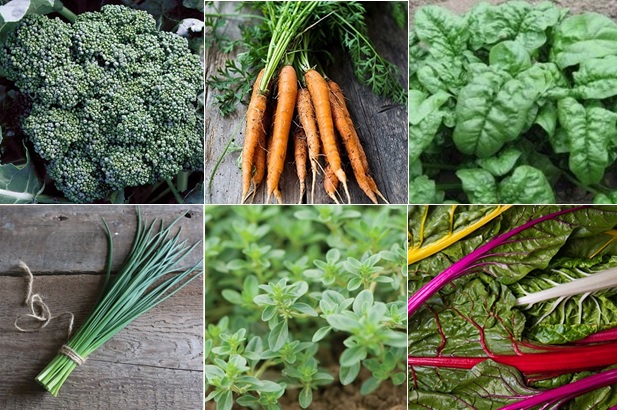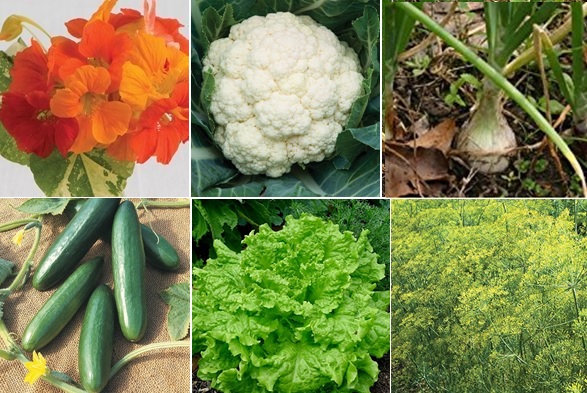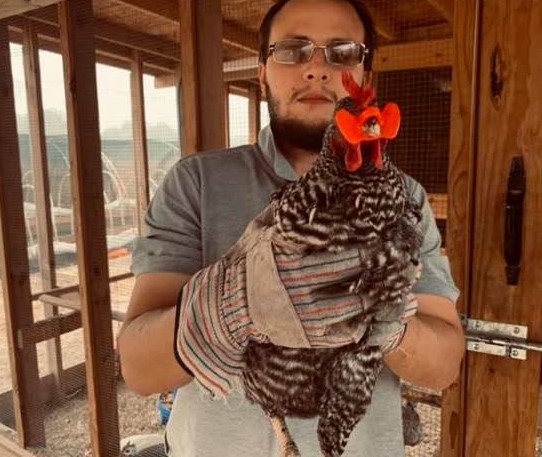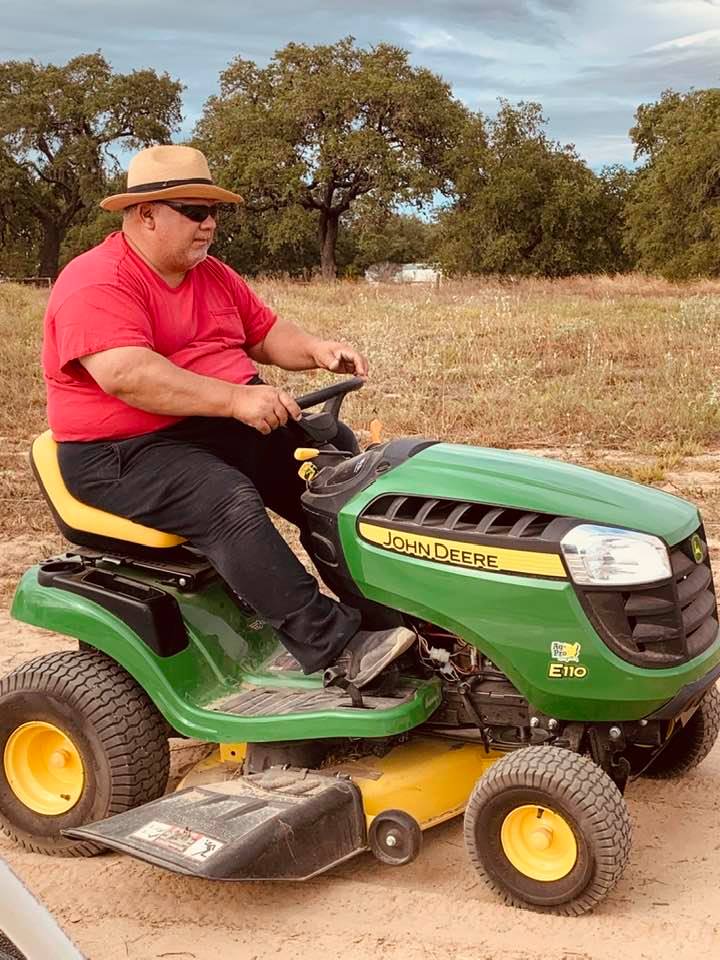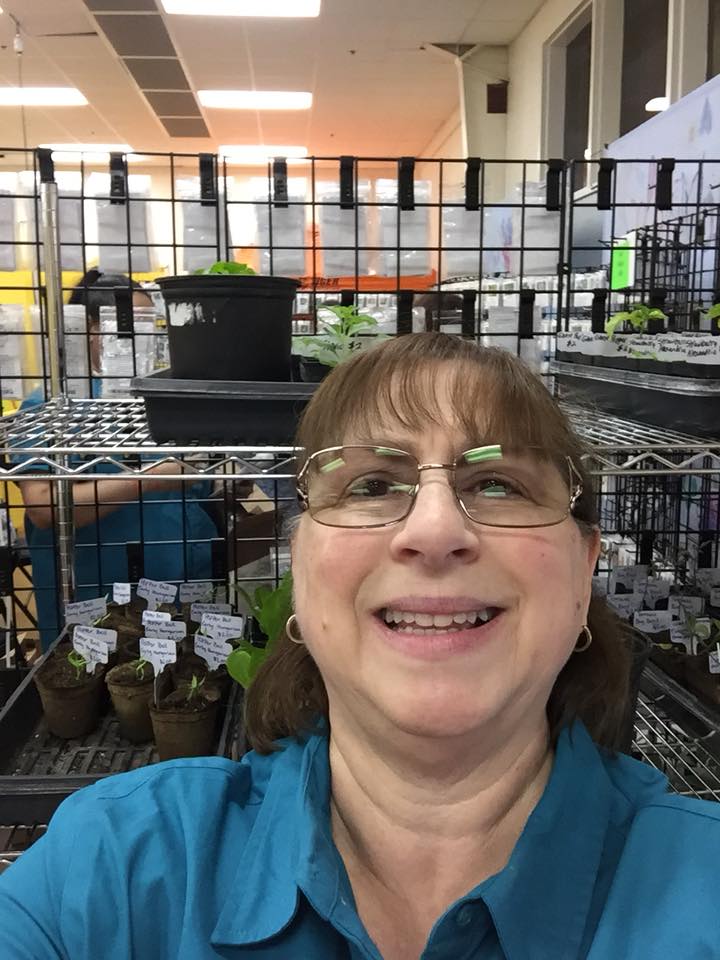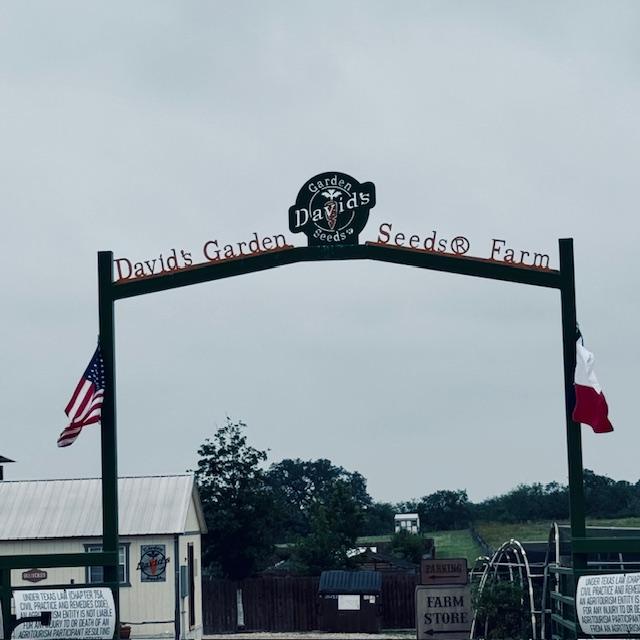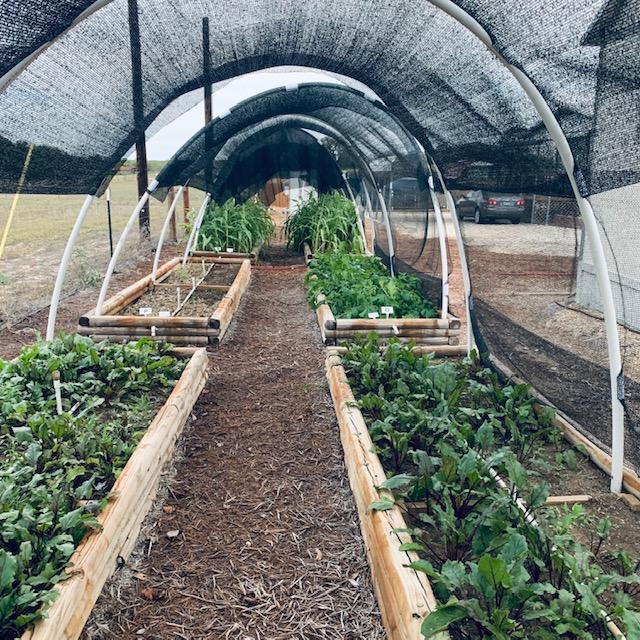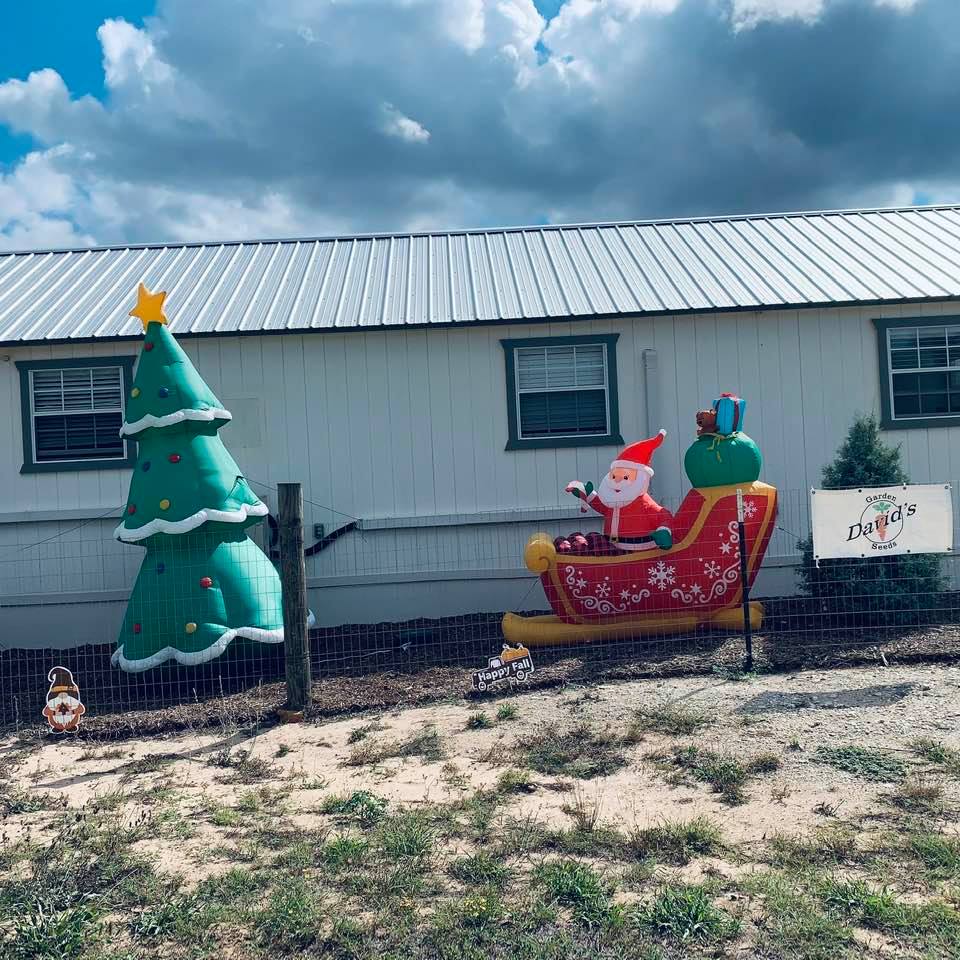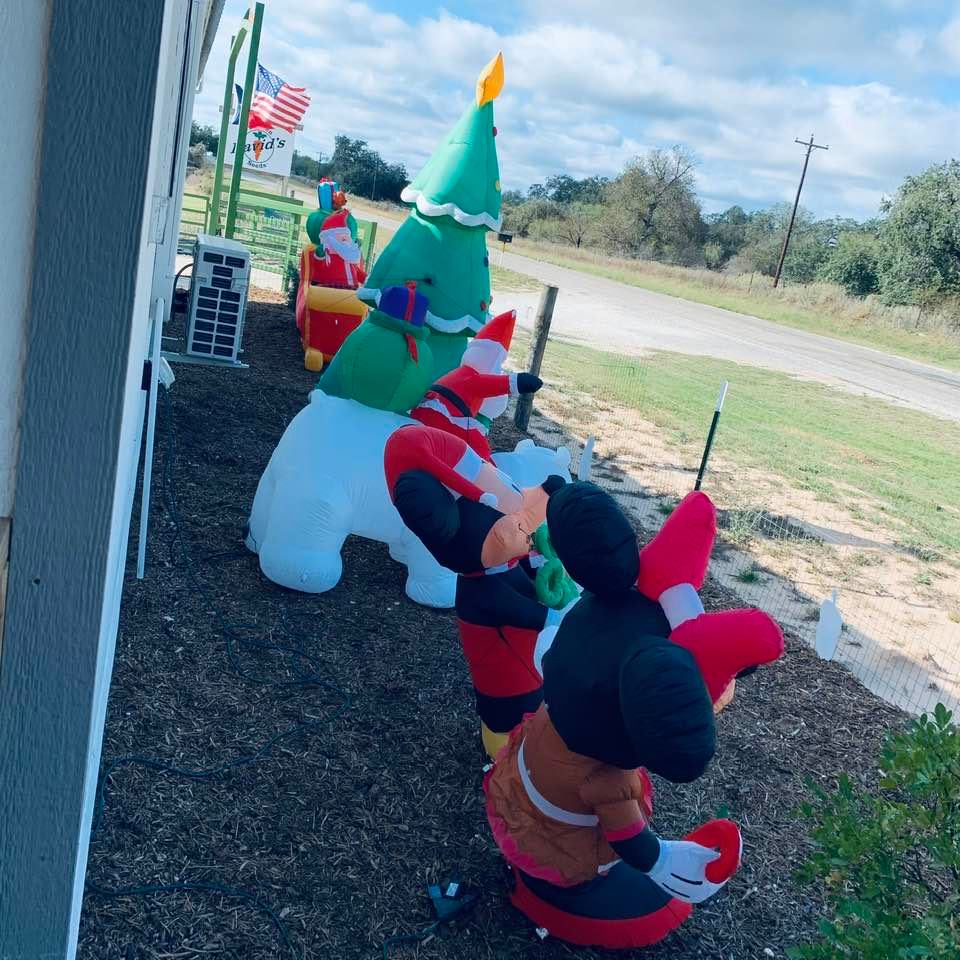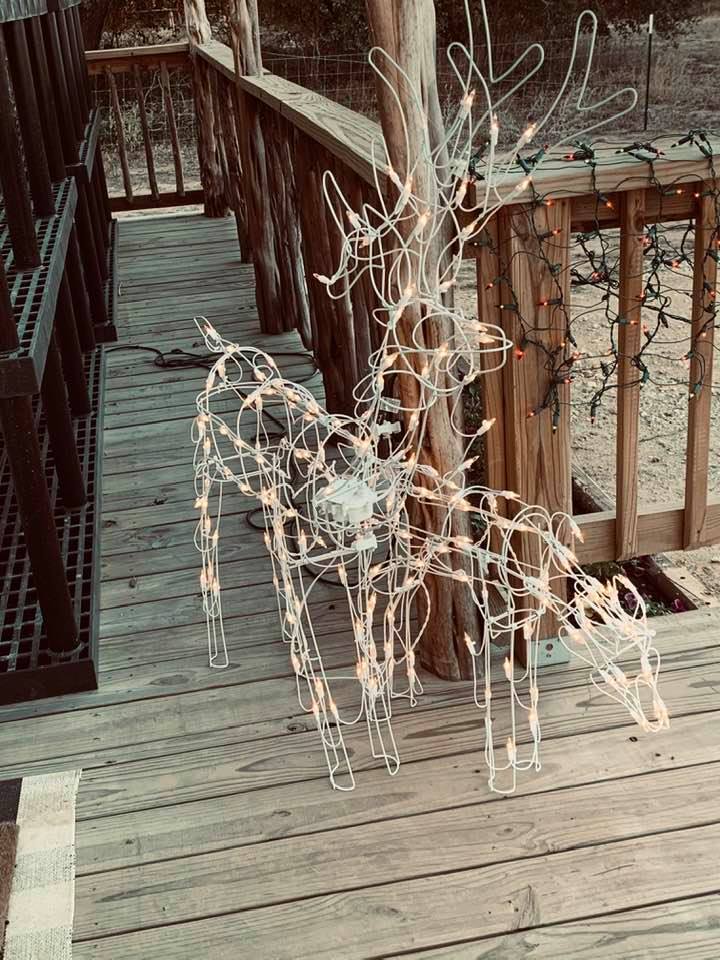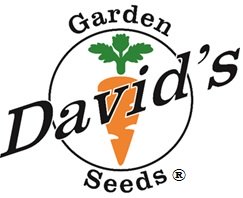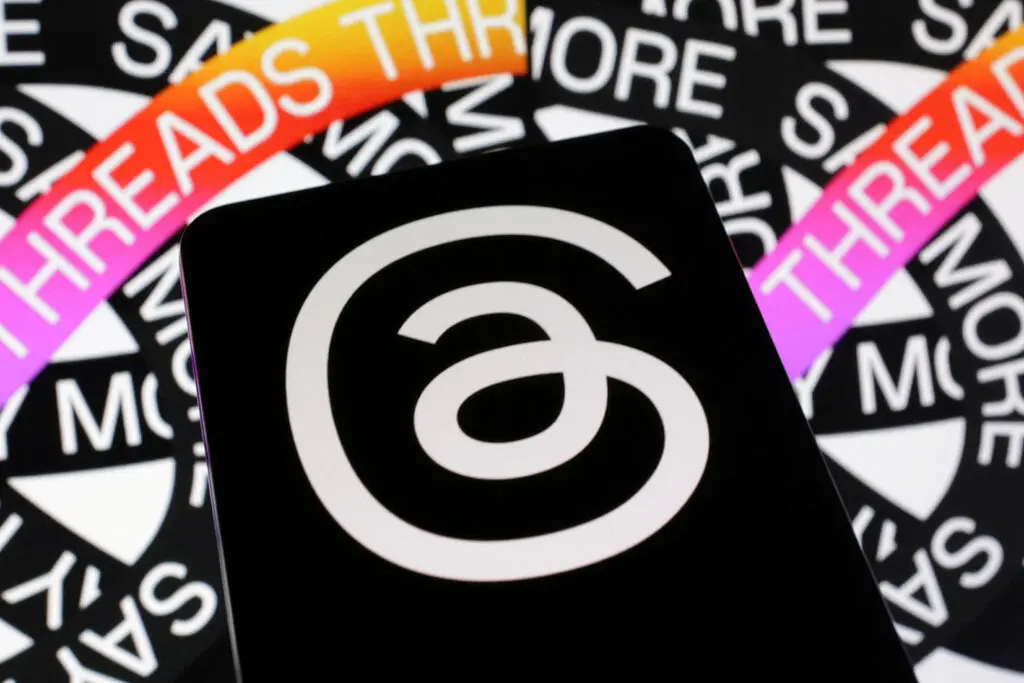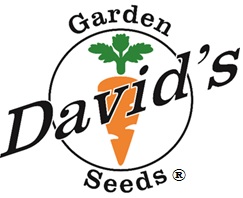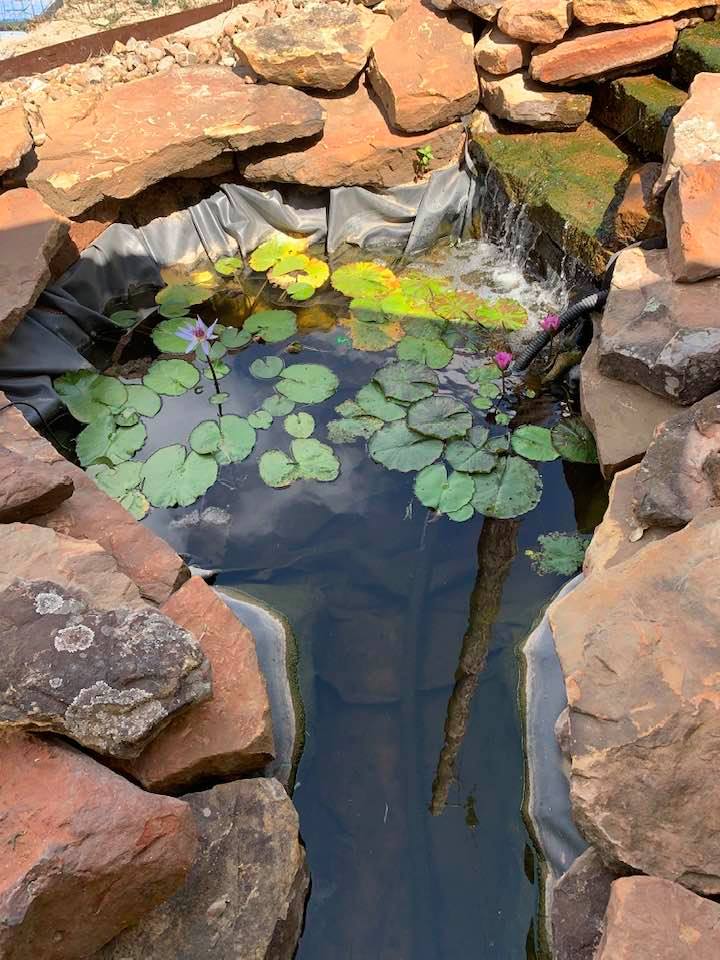Companion Planting
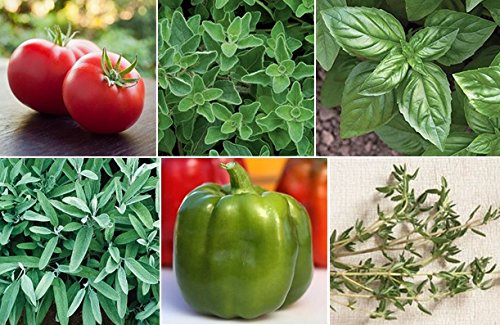 Companion planting insures that plants grow together in harmony giving positive benefits to each other.
Companion planting insures that plants grow together in harmony giving positive benefits to each other.Companion planting is a real thing. A few years ago, David and I were asked to teach a gardening class on this subject and David tasked me to do the research.
Companion planting is planting vegetable, herb, and flower plants near each other to benefit one or more of the plants. Some plants benefit each other by attracting beneficial insects, keeping away unwanted bugs. Others aid in pollination. Some plants have working relationships with each other and others have antagonistic (hostile) relationships.
Several years ago we were selling at a show. A lady came up to me and asked me what companion gardening is. I began to explain the concept of some plants getting along well together and benefiting each others growth and that other plants are hostile toward each other. She stopped me in mid-sentence and told me that was not true and that I did not know what companion gardening is. She then walked off. Had she stayed long enough, my response might have been:
"Okay,
Ma'am, go ahead and plant fennel next to your tomatoes and cucumbers.
Position your beans in between your chives and onions. Plant broccoli
between your squash and your strawberries and see what happens. Your
garden will be one big FAIL!"
This type of gardening is
not an exact science, because soil, climate, watering, and other factors
of the environment play a part. The idea is to get the best garden you
can grow so you will need to plan it ahead of time from experience and
experimentation.
Thousands of years ago, Native Americans planted crops this way and people in England and Asia have been planting their gardens for hundreds of years using this type of gardening.
Companion Planting - What Is It?
This companion planting guide can help you plan a successful veggie garden this spring. Planting some seeds next to other seeds can enhance their growth and yield while other plants will inhibit growth and lower yield.
Environmental factors like climate, soil, rainfall, and temperature play an important part. You may need to experiment with some plants to get it right, adding to the companion planting guide.
Make sure you take notes on what you
plant with what along with the location in your garden so you rotate
your planting location each year. Do not plant the same plant in the
same place in your garden for at least three years. Make your own
companion planting guide as you learn from your crops.
Basically, you want to plant your seeds to grow plants together that help each other grow better and be more flavorful. You also want to attract beneficial insects to control the unwanted bugs that tend to destroy some plants.
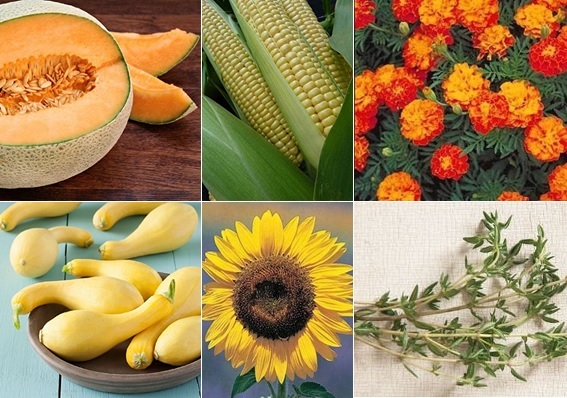 Did you know that flowers like marigolds and nasturtiums can attract bugs off of your fruits and vegetables?
Did you know that flowers like marigolds and nasturtiums can attract bugs off of your fruits and vegetables?Companion Planting Guide
Artichokes love to be planted by peas, cabbage, sunflowers and tarragon. Do not plant tomatoes or potatoes by them.
Arugula loves to be next to bush beans, beets, carrots, celery, cucumber, lettuce, onion, garlic, chives, potatoes, and spinach. Keep it away from cabbage, broccoli, and cauliflower.
Asparagus should be planted with parsley, basil, nasturtiums, and marigolds. Asparagus should not be planted by fennel (the vegetable and the herb) or garlic.
Basil loves and grows well with peppers (any kind), tomatoes, sage, thyme, and oregano. Rue and sage should not be planted near basil.
Beans (all types of beans) love to be planted with broccoli, carrots, cauliflower, corn,
cucumbers, peas, rosemary, strawberries, Swiss chard, tomatoes, thyme,
sage. Be sure not to plant the carrots by the tomatoes. Doing so will make your carrots short and stubby. Do not plant beans by chives, garlic, leeks, marigolds, onions, or peppers.
Beets should be planted with onions, Brussels sprouts, cabbage, kohlrabi, bush beans, and lettuce. Do not plant the beans and onions next to each other. Keep beets away from pole beans and mustard greens.
Broccoli likes to grow near beans, carrots, chives, cucumbers, dill, lettuce, nasturtium flowers, onions, rosemary, sage, spinach, Swiss chard, thyme, and oregano. Be careful not to plant your carrots by dill. Dill and carrots are members of the same family and can cross-pollinate. Do not plant peppers, squash, strawberries, or tomatoes by broccoli.
Brussels Sprouts love basil, mint, marigolds, nasturtiums, mustard greens, beets, bush beans, carrots, celery, lettuce, onion, potatoes, tomatoes, spinach, radish, and peas. Do not plant them near strawberries, pole beans, or kohlrabi.
Burdock loves being next to asparagus, dry beans, peanuts, and soybeans. It does not like beets, carrots, onions, or potatoes.
Cabbage enjoys the company of onions, celery, rosemary, garlic, mint, dill, and thyme. Do not plant cabbage with basil, beans, or tomatoes.
Carrots grow well when they are near beans, broccoli, cauliflower,
chives, leeks, lettuce, onions, parsley, peas, peppers, rosemary, sage,
and thyme. Do not plant carrots near tomatoes or dill.
Cauliflower plants like to be with beans, carrots, chives, cucumber, dill, lettuce, nasturtium, onion, rosemary, sage, thyme, spinach, Swiss chard, and oregano. Do not plant beans with onions. Do not plant dill with carrots, sage with cucumber, or chives with beans. Cauliflower will not grow well with peppers, squash, strawberries, or tomatoes.
Celeriac likes mint, marigolds, chamomile, onions, and spinach. Do not plant with cucumbers or squash.
Celery enjoys being with tomatoes, bush beans, cabbage, cauliflower, leeks, onions, and spinach.
Celtuce likes to be planted with strawberries, onions, carrots, and radishes. Do not plant with parsley.
Chicory likes to be planted with greens. Do not plant with beans or peas.
Chives like to be planted with broccoli, carrots, cauliflower, parsley, tomatoes, sage, and thyme. Do not put carrots near the tomatoes. Do not plant chives with peas or beans.
Cilantro thrives when grown near spinach, sage, and thyme. It also likes radish, carrots, anise, and Swiss chard. Cilantro does not like fennel (the herb and the vegetable).
Collards enjoy growing with one plant, the tomato. Do not grow them with cabbage, cauliflower, kale, and broccoli as they are in the same gardening family.
Corn should be planted near beans, cucumber, dill, melon, parsley, peas, radish, squash, sunflowers, sage, and thyme. Do not plant tomatoes near corn.
Cress loves radishes, marigolds, dill, lettuce, pole beans, beets, carrots, and mints, but hates cabbage and chives. Some of the websites I looked at say cress gets along with chives so there is some conflicting information. I would keep it away from chives...
Cucumbers enjoy the following neighbors: bush beans, pole beans,
broccoli, cauliflower, corn, dill, lettuce, marigolds, nasturtium,
onion, peas, peppers, radishes, tomatoes, and thyme. Do not
put the tomatoes by dill, corn, broccoli or cauliflower. Do not put
beans by onion. Do not put peppers by broccoli or cauliflower. Cucumbers will not grow well next to sage.
Dill grows well by broccoli, cauliflower, corn, cucumber, lettuce, onion, sage, and thyme.Do not put sage by cucumbers. Do not plant dill by tomatoes or carrots.
Eggplant likes to be planted with kale, beans, and okra. It does not like fennel, corn, or zucchini planted by it.
Fennel (the vegetable and the herb) gets along with kohlrabi and peppers. It will cause almost anything else to not grow or it will inhibit the growth of other plants.
Garlic does not like being by asparagus, beans, peas, sage, or parsley. It does well with marigolds, nasturtiums, beets, carrots, dill, cauliflower, kale, kohlrabi, rue, potatoes, tomatoes, peppers, and eggplant.
Gourds should be planted by French marigolds, dill, broccoli, catnip, and radishes. Don't plant gourds by potatoes, onions, and beets.
Greens (Asian, Mixed, and Leafy) like to be with beets, bush beans, carrots, cilantro, garlic, dill, Swiss chard, and potatoes. Keep them away from strawberries, tomatoes, and all brassicas (broccoli, kale, cabbage, collards, Brussels sprouts, kohlrabi, and cauliflower).
Jicama gets along well with sunflowers, corn, beans, cilantro, and ginger. Do not plant with tomatoes or potatoes.
Kale should be planted by onions, garlic, nasturtium, dill, rosemary, sage, and thyme. Keep kale far from strawberries, tomatoes, and basil.
Kohlrabi likes to be by celery, dill, beans, beets, chamomile, chives, nasturtiums, and rosemary. Do not plant near broccoli, cauliflower, turnips, collards, kale, mustard greens, cabbage, pac choi, and Brussels sprouts.
Lavender likes to be planted with broccoli, cabbage, kohlrabi, Brussels sprouts, echinacea, and gypsophila (Baby's Breath).
Leeks will thrive with carrots, spinach, onions, sage, and thyme. Leeks should not be planted by peas or beans.
Lettuce can be planted with carrots, cucumber,
dill, onion, spinach, squash, strawberries, tomatoes, sage, and thyme. Do not plant with brassicas (broccoli, kale, cabbage, collards, Brussels sprouts, kohlrabi, and cauliflower).
Melons grow well with corn, squash, marigolds, nasturtiums, sunflower, sage, and thyme.
Mustard Greens enjoy being planted with radishes,
marigolds, dill, lettuce, pole beans, beets, carrots, and mints, but they do not like to be near cabbage and chives.
Okra likes to be planted next to melons, eggplant, cucumbers, and sweet peppers. Do not plant okra where you have had squash or sweet potatoes planted because the nematodes present in soil where squash and sweet potatoes have been is bad for okra.
Onions should be planted with broccoli, carrots, cauliflower,
cucumber, dill, leeks, lettuce, parsley, strawberries, swiss chard,
tomatoes, beets, brussels sprouts, sage, and thyme. Do not plant carrots by dill or tomato. Onions should not be planted by beans or peas.
Oregano should be planted by basil, sage, thyme, peppers, broccoli, and cauliflower. Do not plant peppers by broccoli or cauliflower.
Pac Choi likes potato, garlic, onion, bush beans, carrots, cucumber, and beets. It does not like broccoli, Brussels sprouts, tomatoes, or peppers.
Parsley likes to be planted by carrots, chives, corn, onion, peas, peppers, tomatoes, sage, and thyme. Do not put tomatoes by carrots or corn. Do not put peas by onions or chives.
Peas should be grown with beans, carrots, corn, cucumber, peppers, spinach, squash, strawberries, parsley, sage and thyme. Do not plant beans by the peppers. Do not plant cucumber by sage. Peas should not be planted with chives, leeks, or onions.
Plant peppers (hot or sweet) with basil, carrots, cucumber, oregano, parsley, peas, rosemary, squash, swiss chard, tomatoes, sage, and thyme. Do not plant the carrots and tomatoes together. Do not plant peppers with beans, broccoli, or cauliflower.
Potatoes love to be planted by onions, peas, bush beans, celery, corn, garlic, and marigolds. Do not plant potatoes by the following: cucumber, cabbage, broccoli, cauliflower, mustard greens, carrots, melons, kohlrabi, parsnips, squash, sunflowers, rutabaga, or turnips.
Pumpkins just love melon, peas, corn, radish, lettuce, basil, chives, marigold, nasturtium, sunflowers, and borage.
These vegetables and flowers attract beneficial
pollinating insects to the pumpkin blossoms, repel pests, and
provide natural weed suppression. Keep your pumpkins away from potatoes, kale, cabbage, cauliflower, brussels sprouts, and broccoli as they can stunt the growth of your pumpkins.
Radishes do very well when planted by cucumbers, corn, peas, parsnips, nasturtiums, chervil, beans, and squash. Radishes dislike grapes, hyssop, kohlrabi, potatoes, and turnips.
Rosemary thrives when planted with beans, broccoli, carrots, cauliflower, peppers, sage, and thyme. Do not plant peppers by beans, broccoli, or cauliflower.
Shallots love to be planted with mint, chamomile, beets, cabbage, carrots, thyme and sage. They hate peas and beans.
Spinach likes to be near broccoli, cauliflower, leeks, lettuce, peas, strawberries, cilantro, sage, and thyme. Do not plant by fennel and potatoes.
Plant your squash (including zucchini) plants with corn, lettuce, melon, peas, peppers, and nasturtiums. To repel squash bugs,
plant White Icicle Radishes and Nasturtium flowers next to your squash
plants. Sage, thyme, oregano, dill, calendula, marigolds also help to
keep the bugs away from your squash. Do not plant broccoli or cauliflower near your squash.
Strawberries should be planted with beans, lettuce, onion, peas, spinach, sage, and thyme. Do not plant onions by beans or peas. Do not plant strawberries by broccoli or cauliflower.
Sunflowers will thrive when planted with corn, melons, squash, pumpkins, pole beans, marigolds, daisies, crimson clover, sage, and thyme. Sunflowers do not like to be near potatoes or hyssop.
Swiss chard should be planted with beans, broccoli, cauliflower, onion, peppers, mint, radish, lettuce, celery, sage, and thyme. Do
not plant beans with onion or pepper. Do not plant onion with beans. Do
not plant peppers by beans, broccoli, or cauliflower. Make sure to
watch the mint closely or it will take over the garden bed it is planted
in. You will need to block it or thin it back often.
Tomatoes get along well with basil, beans, chives, cucumber, lettuce,
marigolds, nasturtiums, onion, parsley, peppers, sage, and thyme. Be sure not to put the beans near the peppers or the onions. Do not plant tomatoes near carrots, broccoli, cauliflower, corn, or dill.
Turnips thrive when planted next to mint and peas. Turnips also enjoy being next to vetch. Beware of the mint as it will take over any garden bed it is put in if you let it. Do not plant by parsnips, beets, and potatoes.
Zucchini grows well with corn, lettuce, melon, peas, peppers, and nasturtiums. To repel squash bugs, plant White Icicle Radishes and Nasturtium flowers next to your zucchini plants. Sage, thyme, oregano, dill, calendula, marigolds also help to keep the bugs away from your zucchini. Do not plant broccoli or cauliflower near your zucchini.
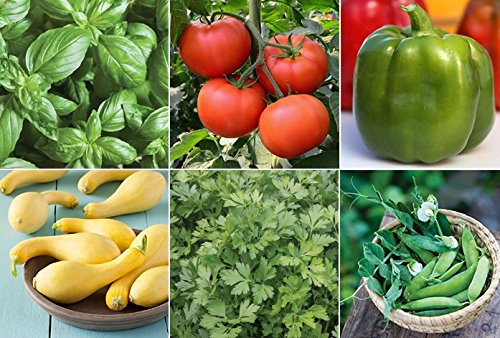 I hope this page on companion planting inspires you to do some research and planning before planting a garden this spring.
I hope this page on companion planting inspires you to do some research and planning before planting a garden this spring.There are many other vegetables, herbs, and flowers that can be planted together in companion planting. Hopefully this companion planting guide will make you curious so you will do your own research on this aspect of gardening and make your own companion planting guide.
Additional Companion Planting Pages
Return from Companion Planting to Garden Ideas
Anything To Share On This Topic?
Would you like to share additional information about this topic with all of us?
Since 2009, over 2,000,000 home gardeners, all across the USA, have relied on David's Garden Seeds® to grow beautiful, productive gardens. Trust is at the heart of it. Our customers know David's Garden Seeds® stocks only the highest quality seeds available. Our mission is to become your lifetime supplier of quality seeds. It isn't just to serve you once; we want to earn your trust as the primary supplier of all of your garden seeds.
Watch Our 2022 TV Commercial!
Sing Along To Our Jingle
♪♫♪♪ ♫ ♪ ♫♪♫♫
♪♫♪♪♫♫
Peppers and peas
And lots of yummy greens
You can't go wrong
With Squash This Long
At David's Garden Seeds
♪ ♫ ♪ ♫
Our New 2024 TV Ad
Please like and subscribe on YouTube and come visit us at our Farm Store! The music on our TV ad was written, played, and sung by our son, Matthew Schulze. You can meet him when you come to the farm. He just might give you a tour. Ask him to grab a guitar and sing our jingle that he wrote.

We are David's Garden Seeds®. If you need great seeds, we've got over 1,200 varieties to choose from.
Subscribe To Mrs. David's Garden Seeds® Newsletter For FREE!
Find out what is going on down on the farm by reading our blog and by subscribing to our free newsletter for all of the information going down at David's Garden Seeds® and on the farm. I love to share helpful information with you. Please let your friends know and y'all come on down for a visit when you get the chance. We would love to meet you!
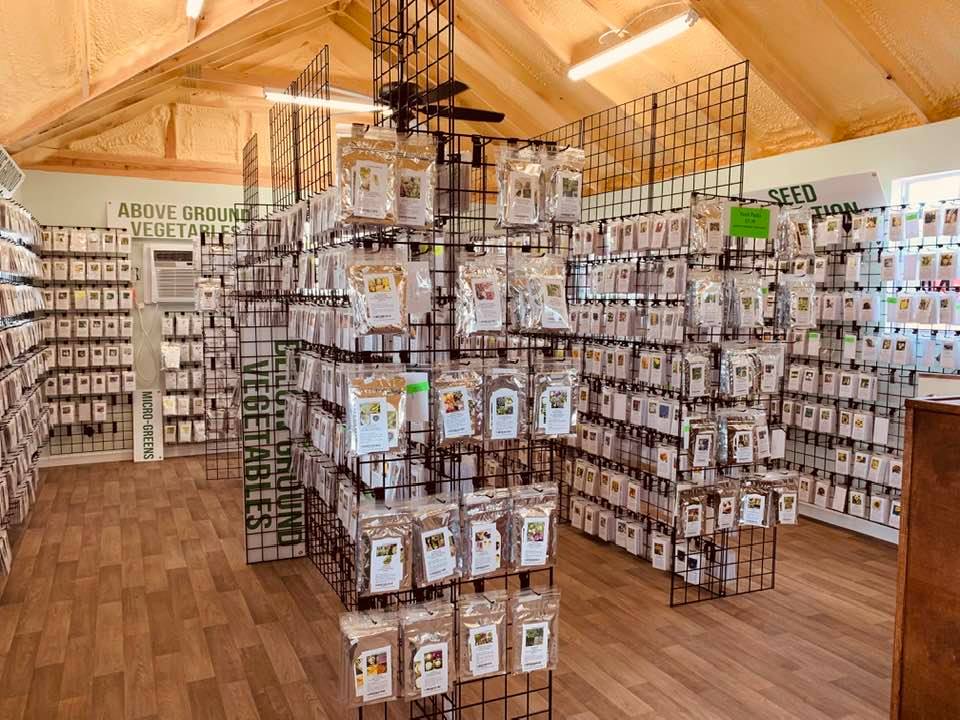
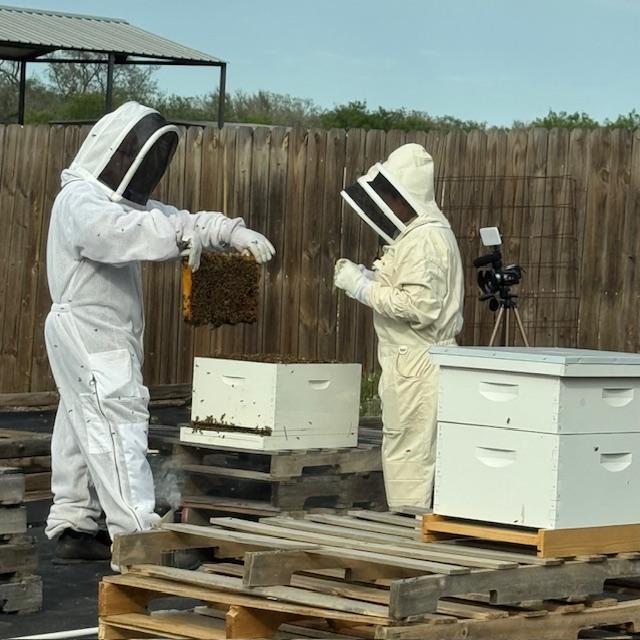 Our bee hives
Our bee hives Our fish pond
Our fish pond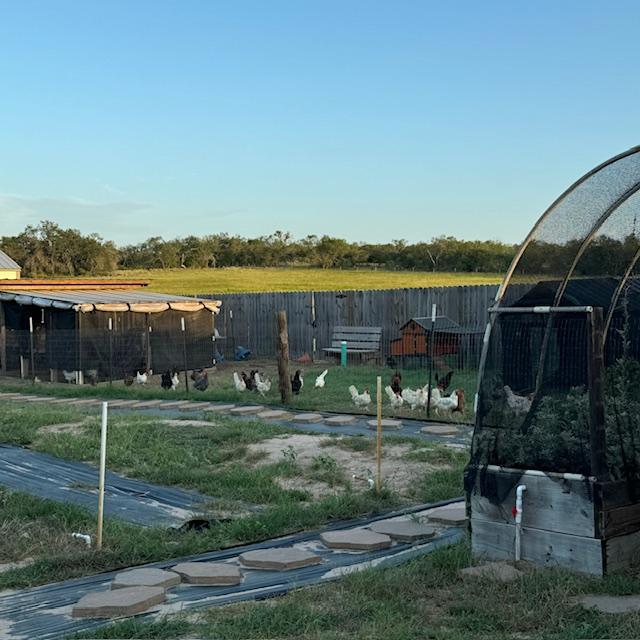 Our chickens
Our chickens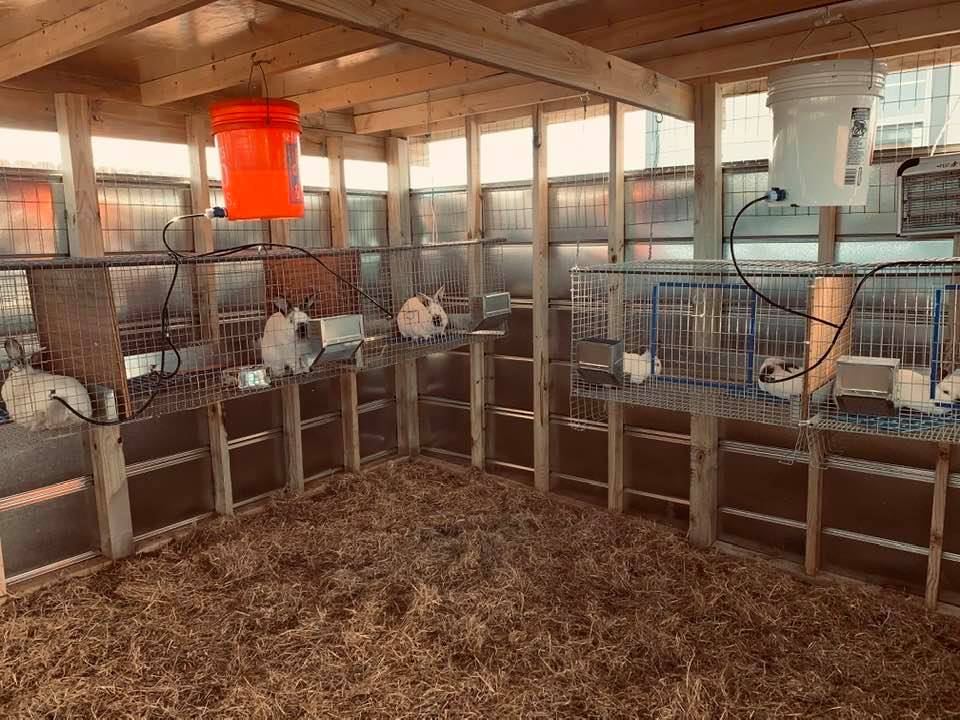 Our bunny rabbits
Our bunny rabbits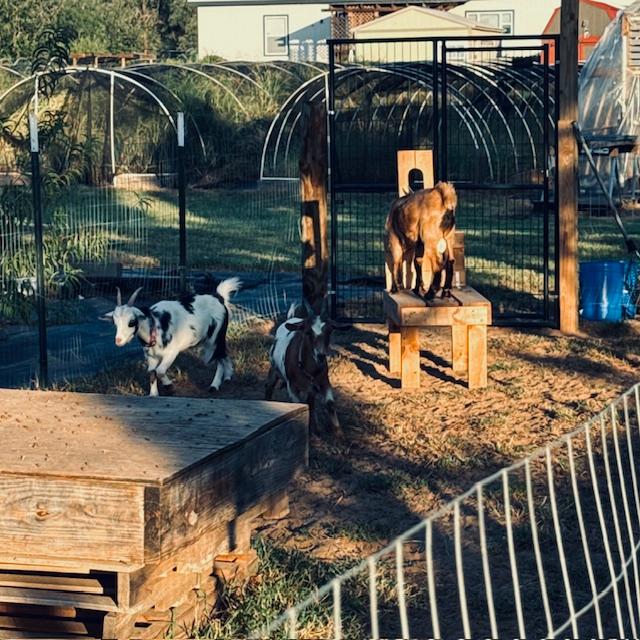 Our Nigerian Dwarf goats
Our Nigerian Dwarf goats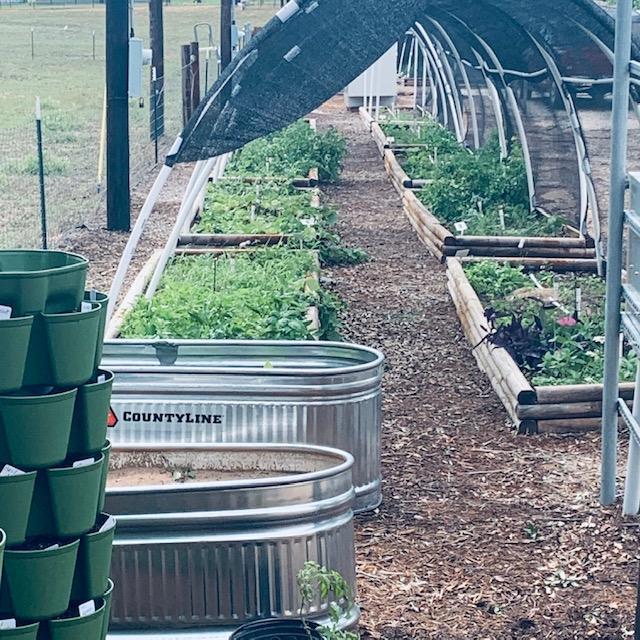 A few of our raised garden beds
A few of our raised garden beds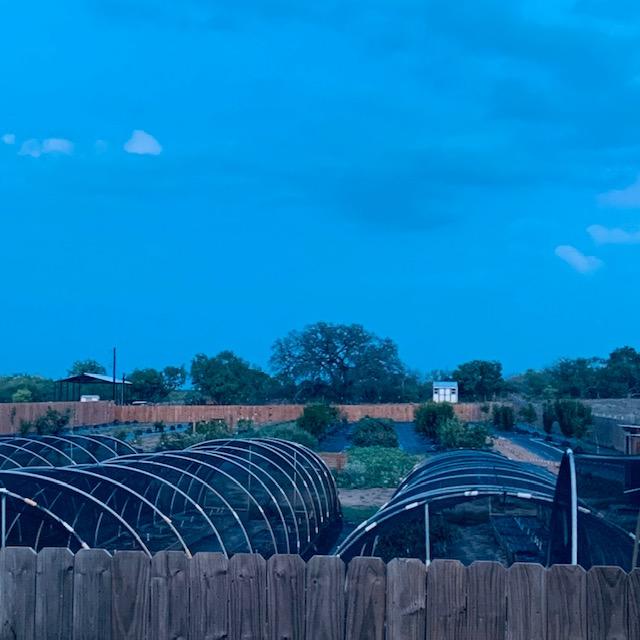 Our orchard and hoop houses
Our orchard and hoop houses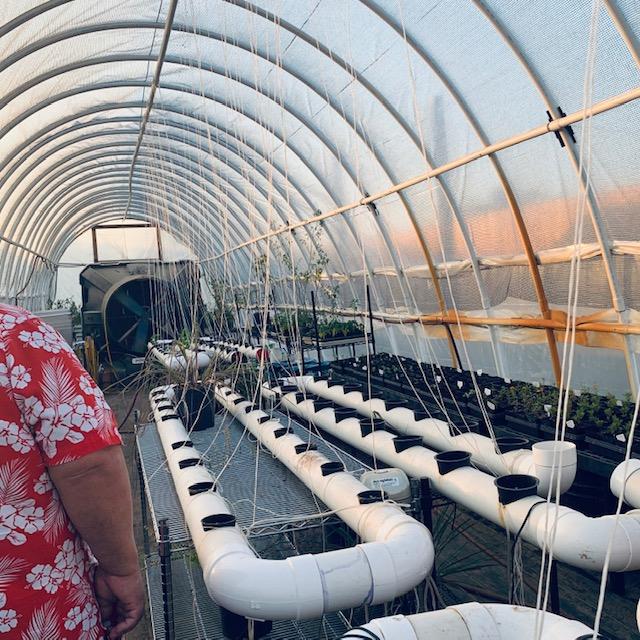 Inside our high tunnel
Inside our high tunnel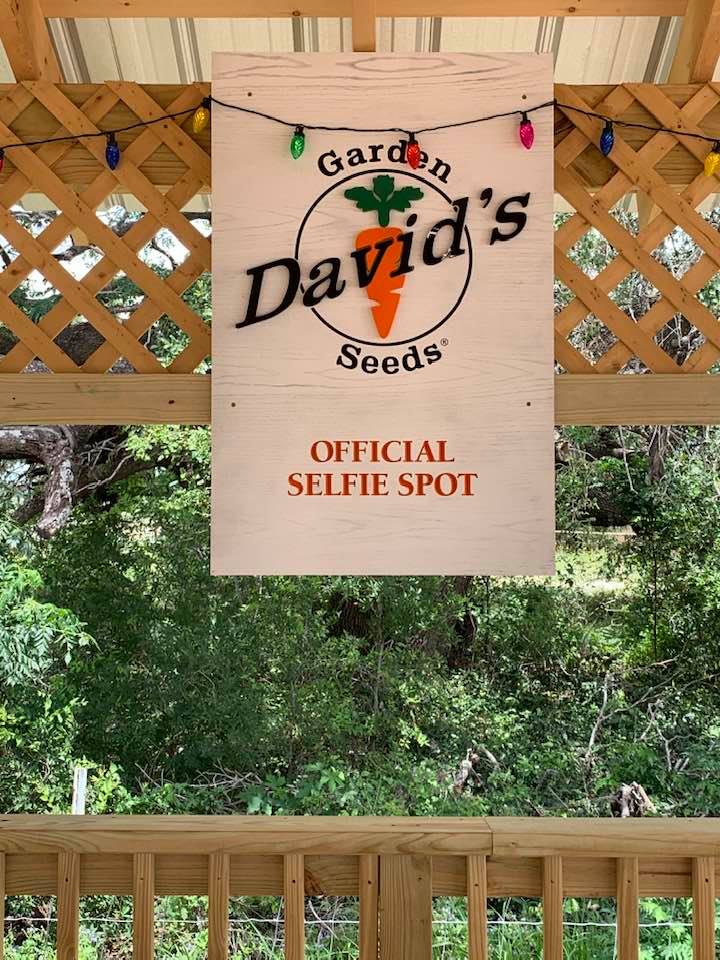 Take a selfie at our official selfie spot!
Take a selfie at our official selfie spot!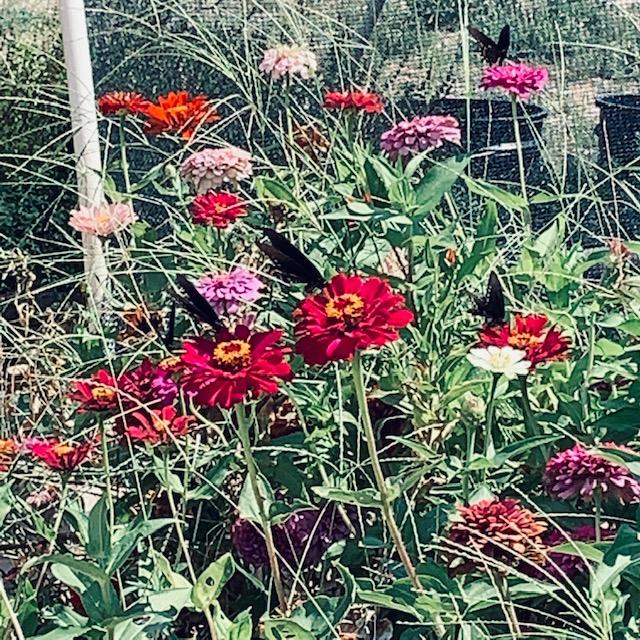 Flowers, bees, and butterflies are everywhere!
Flowers, bees, and butterflies are everywhere!